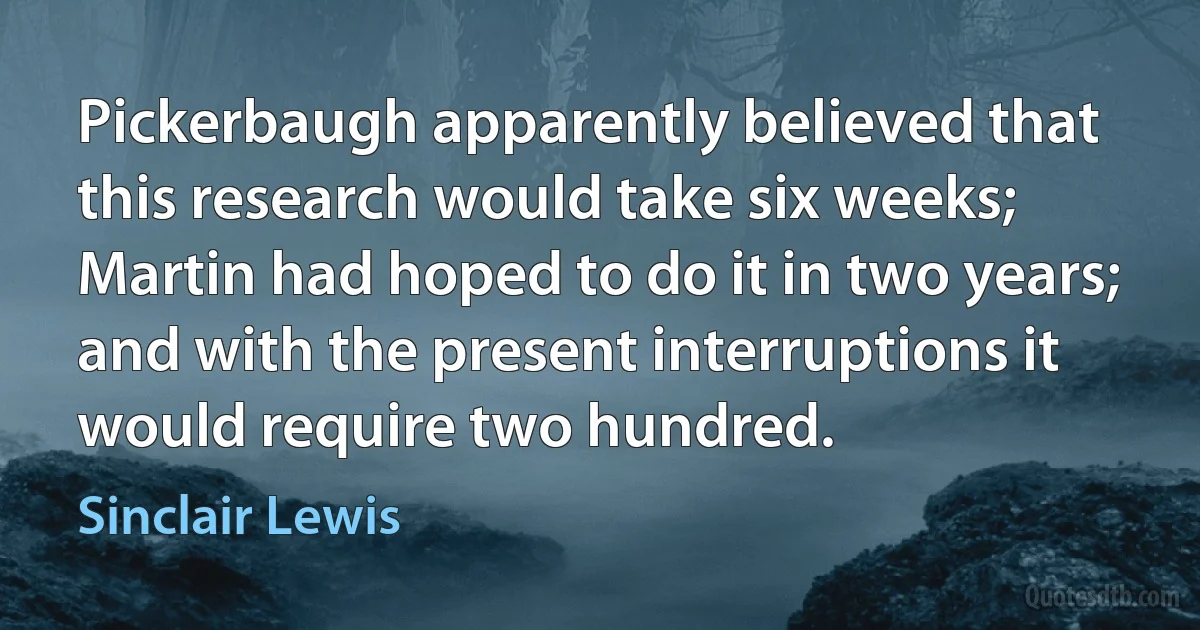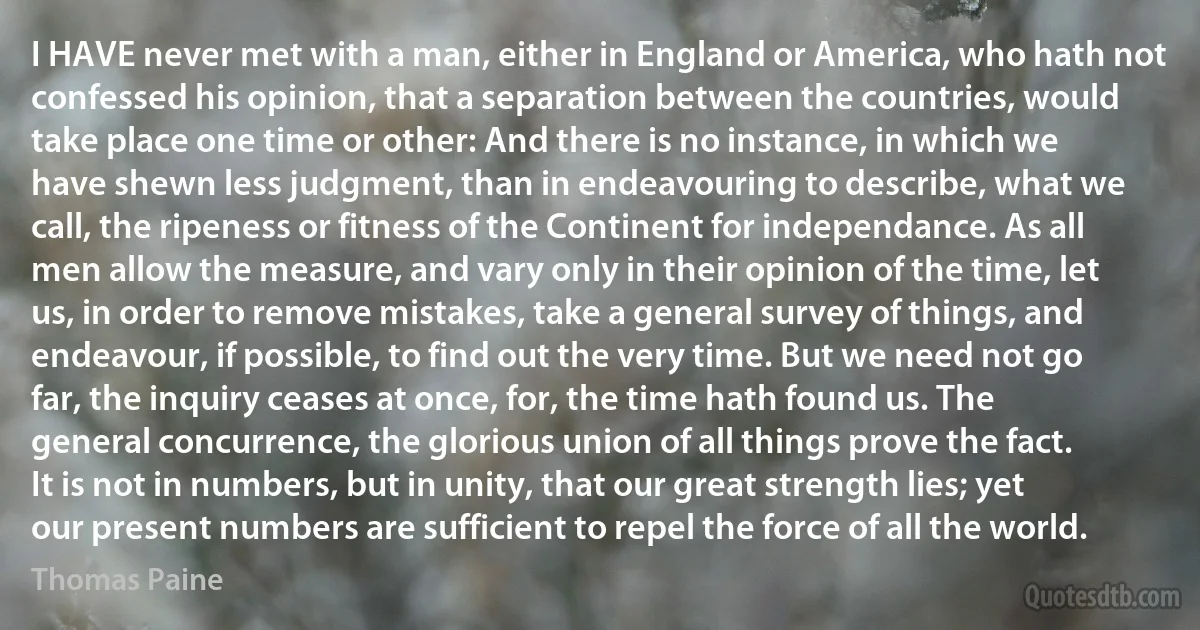Present Quotes - page 37
I shall now address you on the subject of the present situation in research in the foundations of mathematics. Since there remain open questions in this field, I am not in a position to paint a definitive picture of it for you. But it must be pointed out that the situation is not so critical as one could think from listening to those who speak of a foundational crisis. From certain points of view, this expression can be justified; but it could give rise to the opinion that mathematical science is shaken at its roots.

Paul Bernays
Enlightened humanity has sought in rational definiteness its liberating refuge from the dominating influence of the merely authoritative. At the present time, however, this has for a large part been lost to consciousness, and to many people scientific validity that has to be acknowledged appears as an oppressing authority.

Paul Bernays
There cannot be a greater mistake than that of looking superciliously upon the practical applications of science. The life and soul of science is its practical application; and just as the great advances in mathematics have been made through the desire of discovering the solution of problems which were of a highly practical kind in mathematical science, so in physical science many of the greatest advances that have been made from the beginning of the world to the present time have been made in earnest desire to turn the knowledge of the properties of matter to some purpose useful to mankind.

William Thomson
1. There is at present in the material world a universal tendency to the dissipation of mechanical energy.
2. Any restoration of mechanical energy, without more than an equivalent of dissipation, is impossible in inanimate material processes, and is probably never effected by means of organized matter, either endowed with vegetable life or subjected to the will of an animated creature.
3. Within a finite period of time past, the earth must have been, and within a finite period of time to come the earth must again be, unfit for the habitation of man as at present constituted, unless operations have been, or are to be performed, which are impossible under the laws to which the known operations going on at present in the material world are subject.

William Thomson
There is a great affinity in me with the Hindu genius - that mind, vast, imaginative, loving, dreamy and speculative, but destitute of ambition, personality and will. Pantheistic disinterestedness, the effacement of the self in the great whole, womanish gentleness, a horror of slaughter, antipathy to action - these are all present in my nature, in the nature at least which has been developed by years and circumstances. Still the West has also its part in me. What I have found difficult to keep up a prejudice in favor of my form, nationality or individuality whatever. Hence my indifference to my own person, my own usefulness, interest or opinions of the moment. What does it all matter? It is not perhaps not a bad thing,' he says, 'that in the midst of the devouring activities of the Western world there should be a few Brahmanical souls.

Henri-Frédéric Amiel
I shall present a theory - which I call "the theory of the managerial revolution." During the past century, dozens, perhaps even hundreds, of "theories of history" have been elaborated. All of the theories, with the exception of those few which approximate to the theory of the managerial revolution, boil down to two and only two. The first of these predicts that capitalism will continue for an indefinite, but long, time, if not forever:' that is, that the major institutions of capitalist society, or at least most of them, will not be radically changed. The second predicts that capitalist society will be replaced by socialist society. The theory of the managerial revolution predicts that capitalist society will be replaced by "managerial society," that, in fact, the transition from capitalist society to managerial society is already well under way.

James Burnham
With my new instructions I returned to Berlin. The very day after my arrival I was visited by General of the Army Eisenhower with his numerous retinue, amongst whom was General Spaatz, Chief of the US Strategic Air Command. We received General Eisenhower at the Headquarters of the front in Wedenschlosse. Present at the meeting was A. Ya. Vyshinsky. We greeted each other like soldiers, and, I may say, in a friendly way. Taking both my hands in his, Eisenhower looked me over for a long time, then said, "So that's what you're like."

Georgy Zhukov
Safeguarding national honour, without rancour but with firmness demanded by the circumstances, we have recovered the southern islands which are a legitimate part of our national territory. This decision was prompted by the need to put an end to the interminable seccession of evasive and dilatory tactics used by Great Britain to perpetuate its domination over the islands and their zone of influence. That evasive attitude was considered by the national government in the present circumstances as conclusive proof of Great Britain's lack of good will to begin serious negotiations without delay over the central question of the dispute and to recognize once and for all that their alleged rights stem from an act of seizure.

Leopoldo Galtieri
The sentiment of reality can indeed attach itself so strongly to our object of belief that our whole life is polarized through and through, so to speak, by its sense of the existence of the thing believed in, and yet that thing, for the purpose of definite description, can hardly be said to be present to our mind at all.

William James
The third dimension of three-dimensional economics, change, suggests that studying economics also means studying history. The process of change in society cannot be understood without considering the past and how it changed, eventually becoming the present. Change in political economy may be contrasted with the static approach of conventional economics that freezes time at a moment.

Samuel Bowles
There is no need at present to produce new definitions of anarchism - it would be hard to improve on those long since devised by various eminent dead foreigners. Nor need we linger over the familiar hyphenated anarchisms, communist- and individualist- and so forth; the textbooks cover all that. More to the point is why we are no closer to anarchy today than were Godwin and Proudhon and Kropotkin and Goldman in their times.

Bob Black
And then my mind made its first earnest effort to comprehend what had been infused into it concerning heaven and hell: and for the first it recoiled baffled; and for the first time glancing behind, on each side, and before it, it saw all round an unfathomed gulf: it felt the one point where it stood - the present; all the rest was formless cloud and vacant depth: and it shuddered at the thought of tottering, and plunging amid that chaos.

Charlotte Brontë



